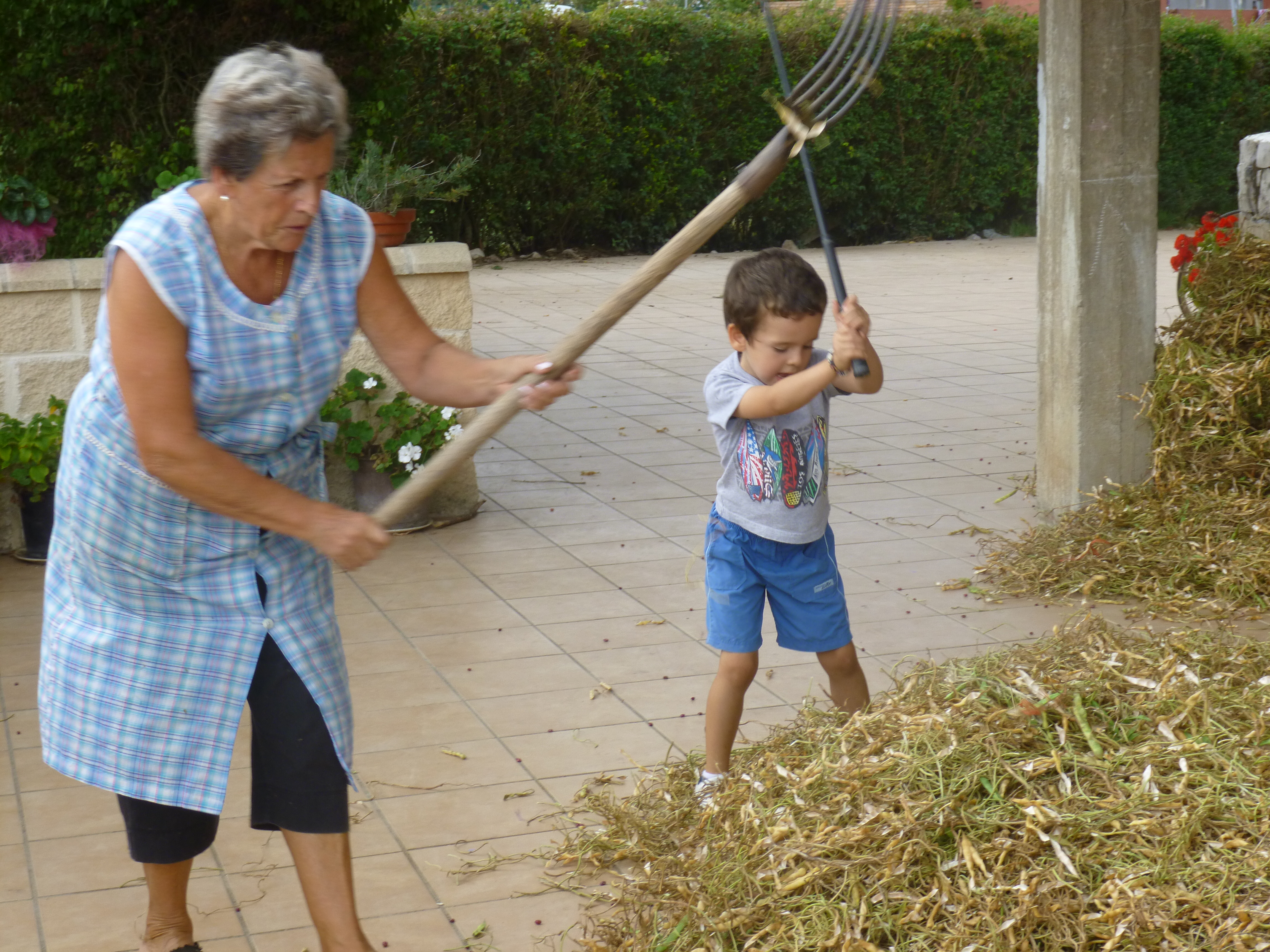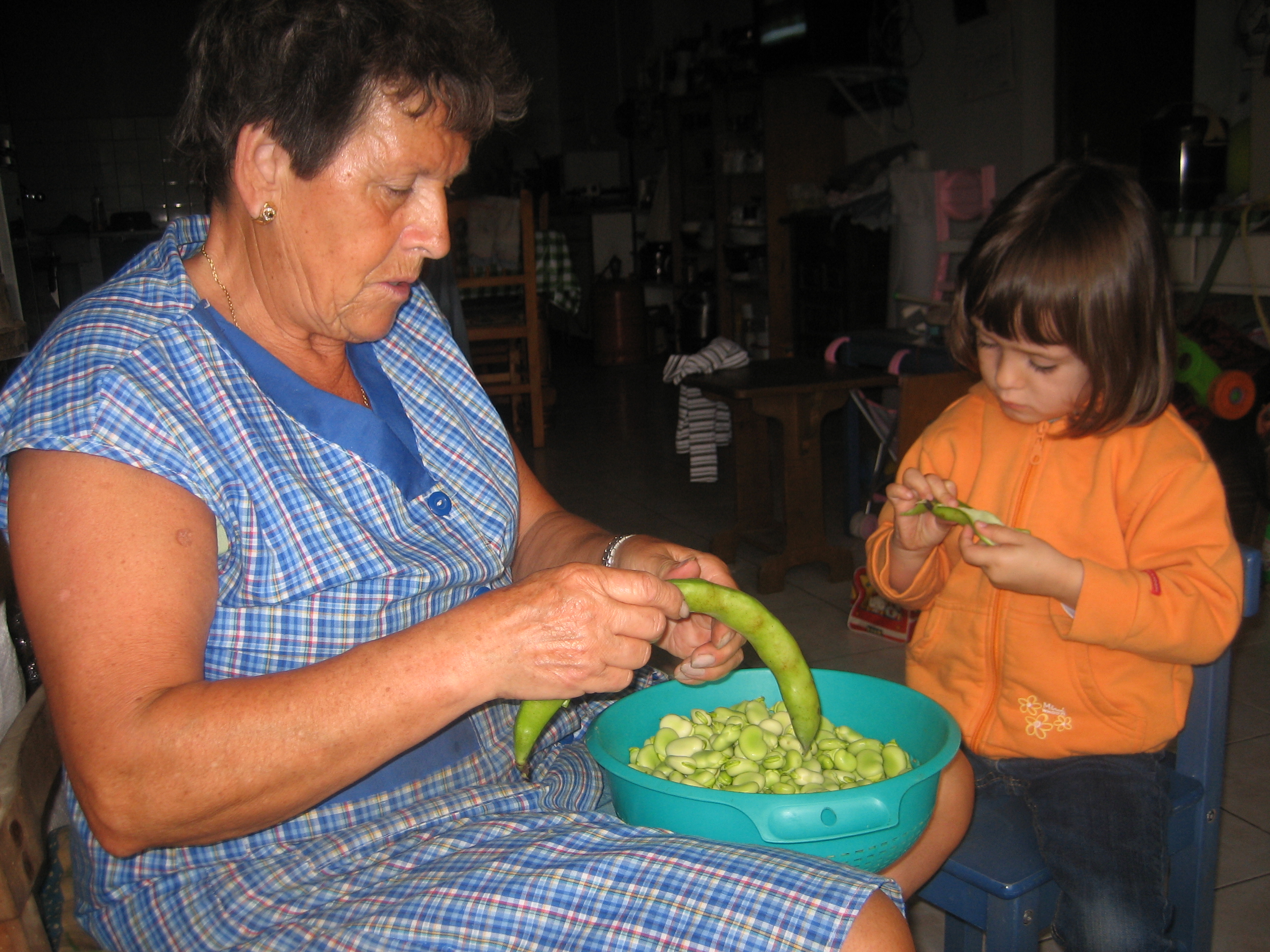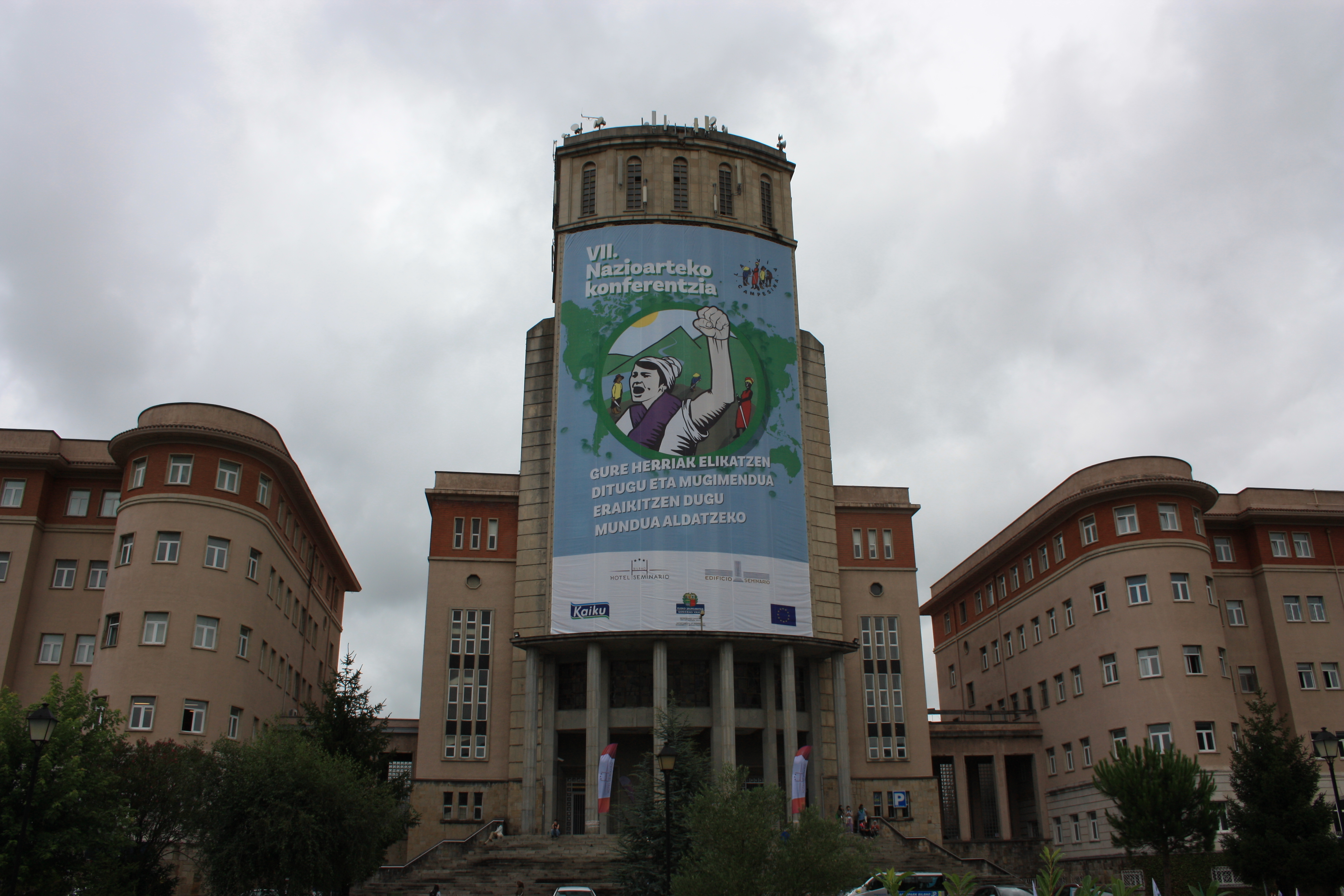Basque ethnography at a glance

Grandmother threshing dry beans with her grandson. Akaitze Kamiruaga. Labayru Fundazioa Photographic Archive.
My father could well have been born in the Neolithic on the basis of his experience in fire matters, a sustainable use of wild living resources, his woodworking skills or the knowledge he possesses of certain farming techniques. Until electric light came to the house when he was a young boy, fire was the only form of lighting and cooking. The use of electricity to produce light entailed a genuine revolution, and every other new development sprang from it, including the move to digital technology. Unleashed by mechanisation, major transformations happened at the beginning of the 1960s, when I was born. My earliest pictures show a child perched on a cart drawn by a pair of oxen. My grandfather lived the days ox-carts were made entirely of wood, without metal parts, carts that he himself built for fellow neighbours. Many of my old schoolmates are industrial dairy farmers now; some of them even resort to robots for milking their cattle. Since the dawn of agriculture until my father’s childhood years, advances in the rural world had occurred at a steadily increasing pace, nothing like the exponential growth experienced in the transit from his generation to mine.

Grandmother shelling broad beans with her granddaughter. Akaitze Kamiruaga. Labayru Fundazioa Photographic Archive.
The eighth volume of the Ethnographic Atlas of the Basque Country, dedicated to agriculture, will shortly see the light of day. From this standpoint, I look at my vegetable garden and identify significant past acquisitions. Some of the crops were introduced at an early stage, just about the same time as agriculture developed, others were highly appreciated by the Romans, some were brought in by the Arabs, and above all, I see crops indigenous to the Americas that over the last centuries have come to be our staple foods. I cultivate them using the same procedures followed by my parents, grandparents and ancestors. Herbicides, pesticides (funnily enough also called phytosanitaries) and synthetic fertilizers are resources I completely avoid; I strenuously insist on resowing or exchanging seeds and never buying selected seeds, let alone genetically “improved” seeds; all characteristic features of “agricultural progress”. Perhaps I am wrong, perhaps my palate is accustomed to their flavour, but to me the foods I grow are tastier, and I dare say healthier, than those I occasionally acquire in supermarkets.

Poster for La Vía Campesina’s VIIth International Conference. Ziortza Artabe. Labayru Fundazioa Photographic Archive.
I am not against “progress”, for it allows me to work the land without as much effort or write this post with the aid of a word processor and quickly disseminate it in order that people I might never have the pleasure to meet read it. Let us, however, do some critical thinking so we realise change does not always equal progress and the traditional knowledge treasured by people of old, like my father, does not become obsolete but remains fully in force now it is time to resist this flow likely to deliver us all to a destination some of us do not choose to share.
PS: La Vía Campesina’s VIIth International Conference is being held in the former seminary of Derio, home to the Ethnographic Atlas of the Basque Country writing team. Both initiatives coincide in their willingness to preserve traditional knowledge.
Luis Manuel Peña – Ethnography Department – Labayru Fundazioa
Translated by Jaione Bilbao – Language Department – Labayru Fundazioa

